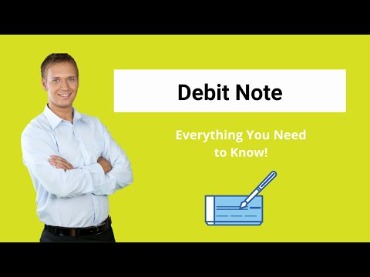
With a few simple systems in place, you can be sure you are accounting for all your income and expenses and can be confident in your financial analysis. Once we had several properties under our belts (and multiple other streams of income), we switched over to Quickbooks. It has been great to keep everything in one place and is extremely powerful in allowing me to separate our different income streams, categorize expenses, and run hundreds of different reports. One drawback of Rentec Direct is the pricing structure starts at $50/month per unit.
The Rental Property Accounting Guide for Landlords
Azibo makes reconciliations easy by automatically importing your transactions, saving you time and eliminating human errors. By pairing rent collection and accounting in one platform, there’s less you have to worry about when running your business. Since most rental income and expenses are predictable and repetitive, you shouldn’t have to manually tag the same types of transactions over and over. Set up rules to automatically tag transactions by category and assign them to properties. Use Azibo’s bulk editor, transaction splitting, and other helpful tools to tag a single or multiple transactions as a specific income or expense category. This saves you hours each month and ensures the most up-to-date reporting with the least amount of work.
You can also enjoy rewards and extra features with some landlord banking accounts. Real estate investors usually use Schedule E (Form 1040) (Supplemental Income and Loss) to report income and expenses related to rental property. A good rental property accounting template categorizes income and expenses according to Schedule E to help make financial reporting and income statement tax filing easier. Although generic accounting software is used by different businesses in every industry, it’s possible to send monthly rent statements, track rental income and expenses, and create regular financial statements. If you use the same bank account for multiple rental properties or LLCs, you know how quickly your bookkeeping can get messy.
Here’s a detailed overview of the best accounting software solutions for landlords. We’ll help you find the one that suits your particular needs, budget, and investing experience. If you qualify as a real estate professional, the passive activity loss rules do not reporting and analyzing current liabilities apply.
What is Rental Property Accounting?

Rental property accounting works a little bit differently than accounting in other industries. For example, real estate investors use rental property accounting to ensure that adequate rental income is generated to pay expenses. If you collect rent online with Azibo, you can export your latest rent roll in seconds.
Also, while the software offers an extensive suite of specific tools and features, its broad focus means it may have features that aren’t as relevant for landlords and may lack some functionality that landlords need. Rent deposits should be made to the account, and all expenses should be paid out of the account. Link any online rental property software you’re using to the bank account so that income and expenses are automatically uploaded and synched. The golden rule of rental property accounting is to report all of your income and expenses as much as you (legally) can. Before you can do this, it’s important to understand the different types of expenses and income in a rental property.
- The one you choose depends on your needs as a landlord and the size and type of assets in your portfolio.
- There are a few things that every real estate investor (or any business owner) needs to get right to set their rental property bookkeeping system up for success.
- We’ve pulled everything you need to know about real estate accounting and tax prep into one convenient guide.
- When you reconcile your accounts monthly, preparing year-end financials at tax time will be stress-free.
- Also, while the software offers an extensive suite of specific tools and features, its broad focus means it may have features that aren’t as relevant for landlords and may lack some functionality that landlords need.
There are a few things that every real estate investor (or any business owner) needs to get right to set their rental property bookkeeping system up for success. I have been a real estate investor for several years now, and I can’t think of a time when anyone has gotten excited about the topic of rental property accounting. Rentec Direct is a cloud-based property management software designed for DIY landlords managing a few units to professional property managers overseeing extensive portfolios. Investor-focused features include editable charts of accounts, fixed asset schedules, and built-in Schedule E reports. However, Xero doesn’t have purpose-built property management or real estate investment features. Landlords might pay for several functions they don’t need and miss out on more specific features that a specialized platform like Stessa provides.
How to Handle Rental Property Banking
Not having a bookkeeping process in place for each rental can make it harder to catch when a property is too expensive to maintain or gauge its profitability in a changing housing market. Azibo can support complex business structures — including multiple legal entities, bank accounts, and portfolios — in a single account. Property owners can also generate and compare reports for individual properties or entire portfolios in just a few clicks – something that costs $80+ per month with Quickbooks Online. Rather than scrambling at the last minute, stay on top of your tax prep by categorizing your transactions at least once per month. This will also give you more clarity into your business performance real time and will minimize errors when it comes time to file your return.
Streamline Your Rental Business with Azibo Accounting!
There are a lot of tools out there, from the humble Excel spreadsheet all the way up to a full-fledged accounting product like Quickbooks. And what worked for me was incorporating the tools I was already using on a daily basis – email and Google Drive. There are a million apps and tools out there to help you digitize receipts and keep your documents in order. You can always start with the Essentials plan and upgrade to a paid 3 3 process costing weighted average plan as your portfolio expands and your needs evolve.
This allows you to better track income and expenses and simplify accounting and bookkeeping. Moreover, by avoiding the commingling of funds, you can protect your assets and also make things easier for yourself at tax time. With the availability of tools discussed above, many landlords and rental property investors do their own bookkeeping and income/expense tracking. In fact, many landlords only utilize a professional tax advisor to file year-end returns. However, hiring CPA or accountant to file your annual tax returns can be worthwhile. They can make sure you’re not missing important deductions that can reduce your tax bill.